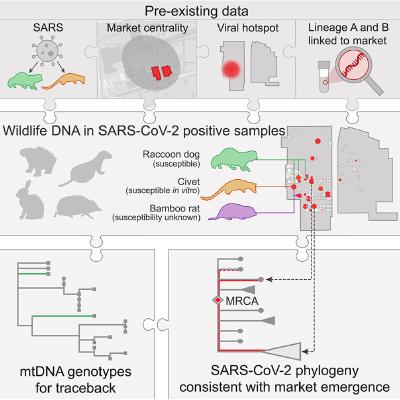Theories of the origin of SARS-CoV-2 in the light of its continuing evolution

SémIdeev
14/11/2025
12:00:00
Florence Débarre, Institut d’Écologie et des Sciences de l’Environnement de Paris (IEES-Paris)
IDEEV - Salle Rachel Carlson
The exact details of the emergence of SARS-CoV-2, the virus causing Covid-19, remain unknown. Scientific publications using data available to date point to a natural origin linked to the wildlife trade at a market in Wuhan, China. Yet, theories postulating a research-related origin of SARS-CoV-2 abound, and currently dominate the public discussion of the origin of the Covid-19 pandemic.
In this seminar, I will first give an overview of the data that have accumulated since 2020, and how they point to a zoonotic origin. Then, I will describe the diversity of research-related origin scenarios, propose a typology to characterize them, and discuss their characteristics and evidence base, or the lack thereof. Finally, I will focus on a feature of SARS-CoV-2 that is central in today’s leading research-related hypotheses, namely the insertion that led to the introduction of a polybasic cleavage site in the spike glycoprotein, and will show how SARS-CoV-2’s evolution in humans over the past 6 years has provided examples demonstrating that such insertions happen naturally.